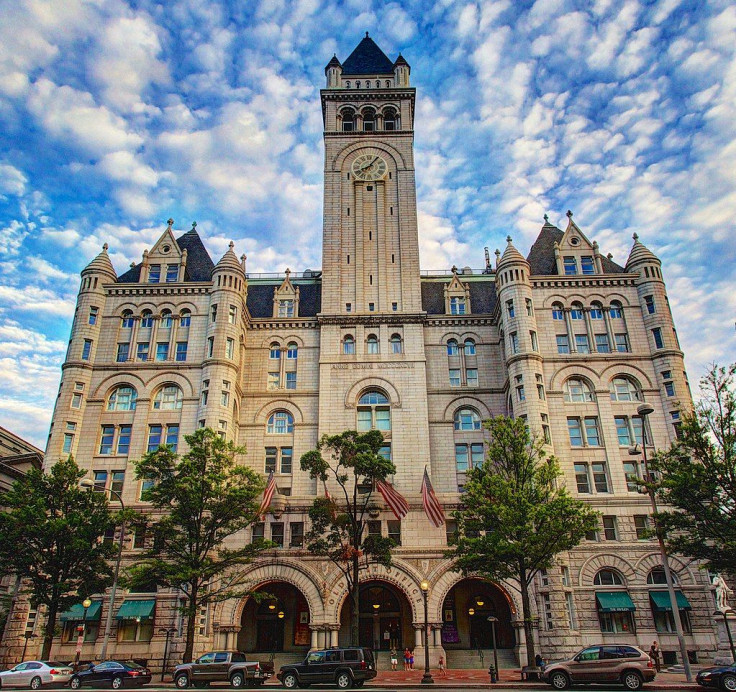What Is The Emoluments Clause? Appellate Court Throws Out Suit Against Trump

KEY POINTS
- The emoluments clause prohibits federal officials, including the president, from accepting payments from foreign governments
- Trump's attorneys say that should not apply to profits from ongoing businesses
- At least 22 foreign governments reportedly have spent money at Trump properties
Update: 1:10 p.m. EST
President Trump hailed the court's opinion.
Original story
An appellate court ruled Friday Democratic lawmakers cannot sue President Trump for illegally profiting from his private businesses while in office.
The D.C. Circuit Court of Appeals ruled the lawmakers did not have the standing to sue.
The suit was filed based on the Constitution’s emoluments clause, which prohibits federal officials from receiving payments or gifts that could result in undue foreign influence. It requires consent from Congress before anything benefits can be received from foreign states.
Trump declined to divest himself from his business empire while in office – the first president not to do so in U.S. history – and his properties regularly receive payments from foreign governments for such things as stays at his hotels. Some 200 members of Congress filed suit to compel Trump to comply with the Constitution in June 2017, about six months after Trump took office.
But the appellate court dismissed the case.
"The members can, and likely will, continue to use their weighty voices to make their case to the American people, their colleagues in the Congress and the president himself, all of whom are free to engage that argument as they see fit," the judges wrote in a 12-page opinion. "But we will not—indeed we cannot—participate in this debate."
Justice Department attorneys argued on Trump’s behalf that the clause should be interpreted narrowly and refer only to payments for official action. The appellate court ruled that argument moot.
The decision overturns a lower court order that granted the lawmakers standing.
“Trump’s failure to comply with the Constitution matters. The founders included the foreign emoluments clause in the Constitution because they recognized that payments and gifts to U.S. officials by foreign governments could compromise the judgment of those officials and undermine their loyalty to the United States, thereby harming the American people,” the Constitutional Accountability Center said.
An NBC News review in July indicated at least 22 foreign governments spent money at Trump properties but the total dollar value was unavailable because the Trump Organization, which is privately held, does not open its books. Trump promised to donate any profits from foreign entities to the Treasury. In 2017 and 2018 he sent $343,000 but did not provide the underlying numbers.
The House Oversight and Reform Committee is investigating Trump’s alleged violations of the clause.
© Copyright IBTimes 2025. All rights reserved.






















